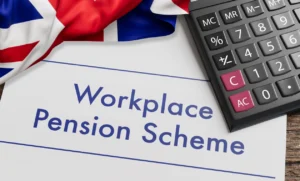To tackle the rising energy costs that skyrocketed the price of living in the UK, the government has announced on the third of February a package of support in various schemes—energy bills discount, Council Tax rebate, and discretionary funding—worth £9.1 billion for the financial year 2022-23.
This energy bill support is a huge help to millions of households in the UK that are inevitably affected by inflation as an aftermath of global events, an increase rate that would have taken 40 years. In the last year, the price of wholesale gas leapt to a quadruple. Since April, energy bills have soared to almost £700, which is too financially heavy for an average household.
UK’s energy bills support, provided through various schemes, makes the financial impacts on households more manageable, strategically spreading the increased costs over time.

The energy bills discount scheme applies in England, Wales, and Scotland, wherein eligible households are given a discount of £200 off their energy bills this coming October. Households in Northern Ireland, on the other hand, with their lack of an Executive, would have to wait for further announcements over when to obtain the discount.
This amount will be paid over the next five years through equal instalments beginning the financial year of 2023-24 when gas prices are anticipated to drop.
Moreover, the Council Tax rebate scheme is only available in England, especially for liable Council taxpayers within the Bands A to D, since this scheme becomes devolved in Wales, Scotland, and Northern Ireland. Non-council taxpayers who don’t pay due to Local Council Tax support and financially struggling households within the higher bands E to H are also eligible for the scheme.
Since the council tax scheme is devolved in the said administrations, they will procure an approximate £565 million extra funding using the Barnett Formula to receive the same kind of support. The Scottish government receives £290million; the Welsh government gets £175million; the Northern Ireland executive obtains £100million. Each of these administrations decide whether to spend the funds this year or the next.
A complete amount of £150 is granted beginning in April to the eligible households that pay direct debit into their direct debit account. The amount does not have to be repaid. A massive majority of people will benefit from the rebate as eligible households in England within Council Tax Bands A to D reach up to 80%.
Taxpayers who didn’t receive direct debit instructions will go through self-certification to confirm that they are indeed liable taxpayers, eligible for the policy, and represent their household in obtaining the claim. Councils decide on which payment options to provide the £150 fund.
The discretionary funding scheme is available for those who are not eligible for the Council Tax Rebate scheme but struggle with the living costs. The funding intends to give top-up payments to the most financially suffering households within the bands A to D.
The government allocates £144 million funds to the local billing authorities. The local authorities are held responsible for determining a household’s eligibility as per their eligibility criteria. Any disputes will be resolved in the billing authority’s complaint field whilst council tax banding disputes are handled by the Valuation Office Agency (VOA).
The discretionary support can reach more than £150 for each household. Billing authorities are expected to distribute all the discretionary funding allocations by 30 November 2022, or they will have to repay the remaining amount.
All the funding assistance that households receive is free from taxes, so recipients of the Council Tax Rebate or Discretionary Fund don’t need to inform the HMRC or include those amounts on their self-assessment tax returns.
Billing authorities provide information pamphlets in hard copies or electronic copies or attach a link of their digital version to aid taxpayers toward understanding the government’s energy bills support. For more thorough support, taxpayers can also turn to Legend Financial as the firm has the most reliable tax professionals who have proven their repute to many clients.
Furthermore, on top of the £9.1 billion for energy bills support, the government aims to add more funds to assist UK residents with rising living costs. Other means include raising the National Living Wage, reducing the Universal Credit taper rate, and freezing fuel and alcohol bills.
References
Support for energy bills – the council tax rebate 2022-23: billing authority guidance. (n.d.). Retrieved from Gov.Uk: https://www.gov.uk/government/publications/the-council-tax-rebate-2022-23-billing-authority-guidance/support-for-energy-bills-the-council-tax-rebate-2022-23-billing-authority-guidance
Energy Bills Rebate – Factsheet. (n.d.). Retrieved from Gov.Uk: https://www.gov.uk/government/publications/cost-of-living-support/cost-of-living-support-factsheet-26-may-2022












